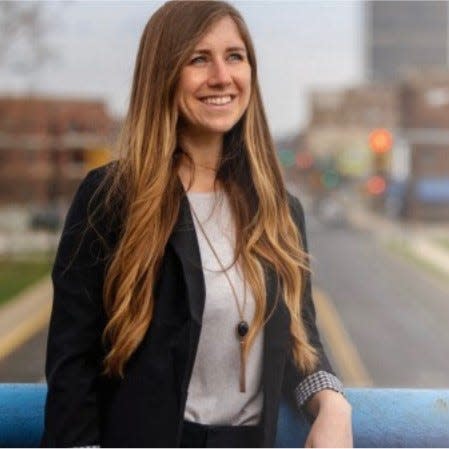Viewpoint: Health equity is a worthy goal. But somehow, it's become a four-letter word
St. Joseph County ranks 48th out of 92 counties in Indiana for overall health, according to Robert Wood Johnson’s County Health Rankings. Interestingly, the county fares well in access to clinical care (17th), thanks to our area’s strong clinical infrastructure. So why does the county experience below average overall health? The causes are not a mystery: limited investment in public health, exposure to adverse childhood experiences and systemic inequities top the list.
Clinical care has a very modest impact on overall health; 80 percent of a person’s health is influenced by factors outside the realm of clinical care. Social and structural factors impact access to and quality of health care and health outcomes. Where and how one lives are significant determinants of health: The neighborhood you live in affects your life expectancy. It’s hard to eat healthy food if no stores nearby sell fresh produce, or you don’t have transportation to get someplace that does. A good night’s sleep is challenging without a roof over your head. It’s tough to be proactive about your health without health insurance to cover your doctor’s visit or prescriptions. You can’t receive the best care if you face discrimination, or your signs and symptoms are dismissed. Striving toward health equity is an explicit goal of public health.
Open positions: Staff leave health department under political scrutiny. Big state dollars still loom.
Under the leadership of Dr. Bob Einterz (former health officer) and Dr. Mark Fox (deputy health officer), the Department of Health laid out an ambitious strategic plan for 2020-2024. The hallmark of the plan were two central commitments: to be data-driven and laser-focused on health equity. The Health Equity, Epidemiology, and Data (HEED) Unit was established in 2020 to signal that commitment, integrating our data analytics and our community outreach. I was privileged to serve as the inaugural director of the HEED Unit, which grew from a lone epidemiologist to a team including data analysts, a licensed clinical social worker, a Positive and Adverse Childhood Experiences Coordinator and three teams of Community Health Workers — focused on childhood lead poisoning prevention, improving maternal and infant health outcomes, and mitigating the impact of COVID on individuals at highest risk. Bottom line, we focus on identifying disparities and working to advance health equity.
By the fall of 2022, our programs were gaining national recognition for our innovative work in community health. Yet, over the last six months, our work in health equity has been subjected to unjust, heightened scrutiny by members of the Board of Health, County Council, Board of Commissioners, even the DoH attorney. In fact, county leaders told me and other DoH personnel that they will oppose funding for any initiatives that contain the terms “birth equity” or “health equity.” Somehow, “equity” has become a four-letter word.

Optimistically, I believed this opposition arose from a fundamental misunderstanding of our goals, motives or methods that could be corrected. Regrettably, I concluded that their opposition is not rooted in a good faith misunderstanding. Some falsely equate “equity” with Marxist ideology and claimed that public health is a zero-sum game: Devoting additional resources to an adversely-affected group presumes that a better situated group must get less. Any attempt to address the social and structural factors that have a devastating impact on the health of so many in our community is seen as a challenge to the meritocracy of ideological extremists.
Our pursuit of health equity focuses on ensuring that everyone in St. Joseph County — rich/poor, gay/straight, religious/not religious, Black/brown/white — has the opportunity to live a healthy life. The toxicity created by the relentless ideological assault by our county leaders has devastated the morale of a highly-effective team. The current constraints handcuff our ability to pursue the goal of health equity. Therefore, I made the difficult decision to leave a job that I love, leading a team that I love and serving a community that I love. Nevertheless, I remain firmly committed to the vision of health equity for St. Joseph County.
Cassy White formerly led the Health Equity, Epidemiology, and Data (HEED) unit at the St. Joseph County Department of Health.
This article originally appeared on South Bend Tribune: Health equity has been politicized by some St. Joseph County leaders
